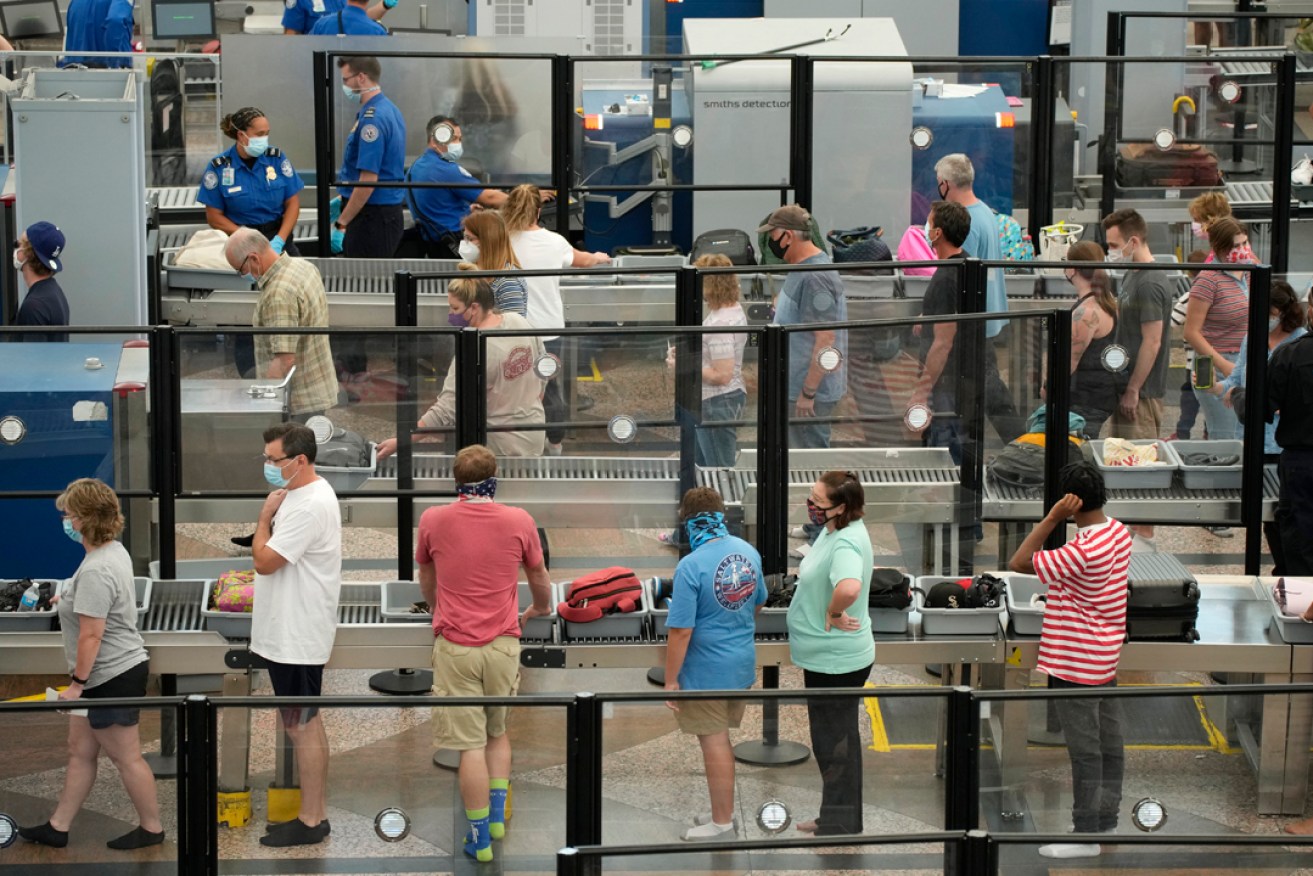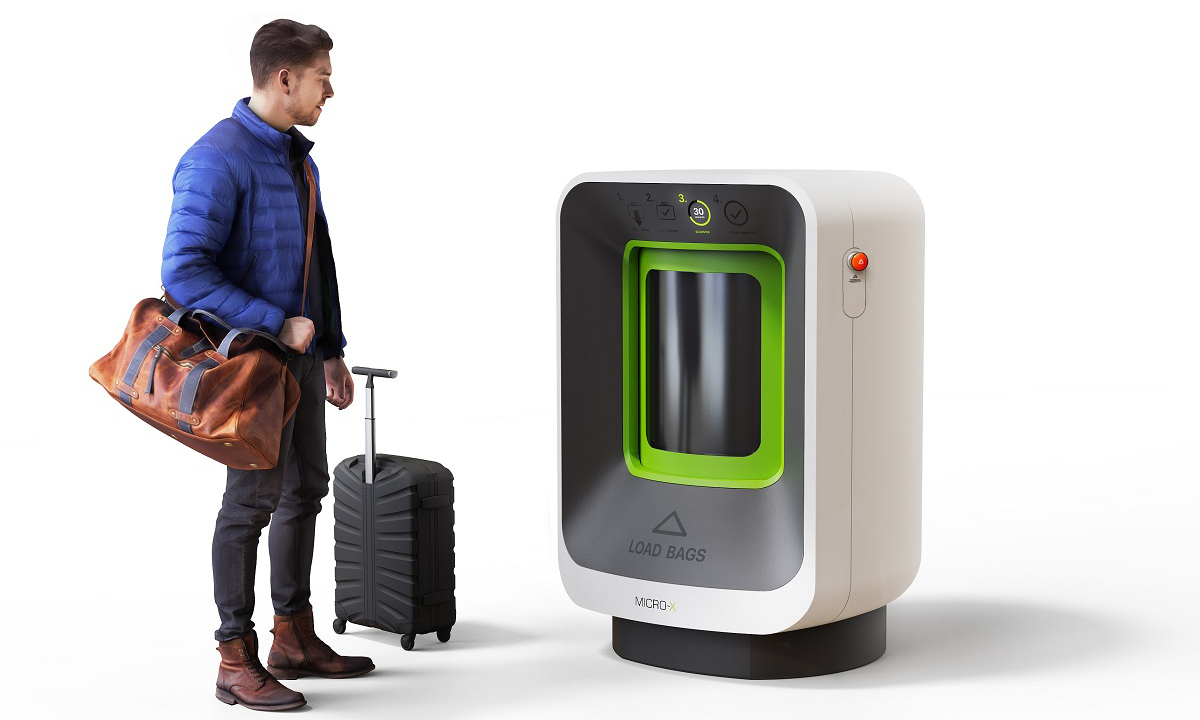Airport check-in contracts helping Tonsley company take off
Adelaide hi-tech imaging company Micro-X has finalised two contracts with the US Government’s Department of Homeland Security to design and manufacture a miniature x-ray baggage scanner to be used in a self-screening portal for airport passengers.


Micro-X is working on an automated system to reduce airport wait times like the ones faced by travellers at Denver International Airport last month. Photo: David Zalubowski/AP.
The two contracts – one to develop the x-ray CT baggage scanner and the second to design the overall self-screening portal – have started and are worth up to $4 million over the next 20 months. They could lead to major manufacturing orders to provide systems for airports across the US.
The company says the concept of the portal is to combine existing self-service technologies such as automated document scanning and validation, identity verification and millimetre-wave body scanning with its new technology.
It is collaborating with several other companies on the portal project under the DHS’s Screening at Speed program, which aims to reduce processing times at US airports.
Partners include Melbourne-based Elenium, a global leader in several elements of airport passenger workflow automation and a European company specialising in millimetre-wave body scanning.
The miniature, self-service x-ray scanner for carry-on bags and personal items will be integrated into the one-stop portal, which Micro-X says will be based on a passenger-focused design approach.
The company last month also secured $8 million in funding from the Australian Stroke Alliance to develop miniaturised diagnostic brain CT imaging scanners small enough and affordable enough to generate widespread pre-hospital stroke diagnosis and treatment in ambulances.
Earlier this year, Micro-X also raised $30.5 million to expand its US footprint and fast-track new lightweight x-ray products.
The DHS portal contract will be performed in Seattle by its US subsidiary Micro-X Inc and managed by a new business unit focused on airport checkpoints and headed by Dr Brian Gonzales. The miniature x-ray scanners will be built in Adelaide.

An early concept image of the Micro-X self scanner, which is being integrated into a one-stop self-screening portal. Picture: Micro-X
Micro-X managing director Peter Rowland said the genesis of the contracts could be traced back to work the company did at London’s Heathrow Airport in 2019 to develop an x-ray scanner to meet the challenge of finding explosives hidden in electronic devices.
He said the UK contracts allowed Micro-X to demonstrate its miniaturised CNT technology, which may lead to removing the need for passengers to remove large electronic devices and liquids from carry-on bags.
“We’re very excited that now this unique miniature scanner technology has become the enabler for a radical new approach to airport checkpoint security in the United States which will hugely benefit travellers once it is in place,” Rowland said in a statement to the Australian Securities Exchange this week.
“This (portal) contract is transformational for Micro-X and represents the culmination of many years of amazing work by Dr Gonzales in developing new concepts for improving x-ray imaging for aviation security.
“Every traveller has got airport security horror stories to tell – it’s so exciting that this amazingly innovative international team, led by Micro-X is now positioned to make future air travel a more enjoyable and safer experience.”
The company says the self-scanners could also have numerous commercial security applications such as at stadiums, public events, government and commercial buildings and public transport.
“The small size of this unit opens up many other applications as well where conventional x-ray screening lanes are not practical,” Rowland said.
Micro-X listed on the ASX in December 2015 shortly after relocating from Victoria to South Australia to establish a manufacturing hub at the Tonsley Innovation Precinct in Adelaide’s southern suburbs.
It launched its flagship lightweight mobile x-ray unit, the Nano, in 2017 and has since launched the more durable Rover version, which is designed for defence applications such as military field hospitals.
But the company is yet to make a profit and posted a $14.7 million loss after tax in 2020-21.
Micro-X has a market capitalisation of about $151 million and a share price of $0.33 at today’s opening, up from $0.28 at the start of September.
It was ranked No.60 in in InDaily’s 2020 South Australian Business Index of the state’s top 100 companies, up from No.64 in 2019.
Ticket sales are open for the South Australian Business Awards, held at the Adelaide Convention Centre on Friday 22 October. Premier Steven Marshall is the keynote speaker at this must-attend event for anyone serious about doing business in South Australia.




